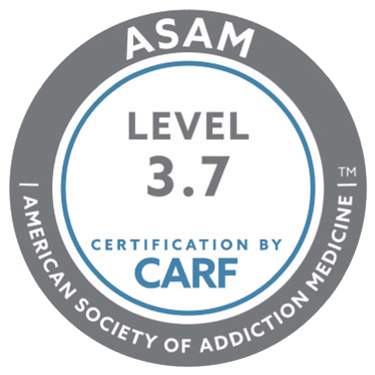As of 2017, at least 74% of American adults struggle with alcohol use disorder. This dependency doesn’t only lead to severe physical health concerns but also many mental health issues that could become irreversible in the long run.
In response to the growing concerns of substance abuse and mental health disorders, psychiatrists and researchers came up with intensive outpatient treatment programs. This form of rehabilitation takes a slow and steady step-by-step approach to sobriety without committing to round-the-clock hospitalizations.

The program’s comprehensive structure aims to address addiction-related concerns and consequences, especially withdrawal symptoms. This article is based on how IOP works, what its benefits are, and the processes it involves.
Definition of Intensive Outpatient Program
An intensive outpatient program, or IOP, is a method for substance-related disorders and mental health treatment for illnesses such as depression, anxiety, and emotional problems.
The “intensive” refers to a consistent therapy plan that requires a specific amount of hours per week. The specifics will vary from program to program, but according to the Substance Abuse and Mental Health Services Administration (SAMHSA), most programs require 9 to 20 hours of participation per week. On the other hand, “outpatient” means the client can go home after each session.
This program is meant for conditions where constant supervision and detoxification aren’t compulsory. Each session usually lasts around six to nine hours or more per week for two to three months.
Importance of Intensive Outpatient Program
Substance addiction, including its withdrawal period, can last for days, weeks, or months. The effects of such a condition are also tied to various mental health disorders that have severe psychological consequences if not treated carefully.
IOP is necessary to give patients the recovery they need to return to their daily routines. IOP program is designed to establish support mechanisms, help with relapse prevention and management, mindfulness skills, and provide coping skills. While the program doesn’t entirely ensure a relapse won’t occur, the chance of it happening lessens significantly.

Characteristics of Intensive Outpatient Program
IOP provides various educational tools and resources that help develop skills to aid recovery. It boasts a cohesive structure to manage withdrawal symptoms effectively.
These are some of the characteristics of an effective intensive outpatient program:
Comprehensive Treatment Plan
IOP follows a comprehensive treatment plan to minimize or ultimately remove the risks of relapse. The stages of treatment involved in the program include the following:
- Treatment engagement
- Early recovery
- Maintenance
- Community support
Before the patient undergoes any form of therapy, the appropriateness of the IOP is analyzed based on their premise. This screening process includes evaluating the individual’s susceptibility to change through comprehensive biopsychological and multidimensional assessments.
There’s also an attempt to foresee the outcome and duration of the treatment plan through the incorporated methodology.
Regular and Frequent Therapy Sessions
One of the essential approaches to IOP is the inclusion of regular and frequent therapy sessions. Its ultimate goal is to accelerate the patient’s recovery through individual counseling, life skills classes, and the like.
Most of the therapy sessions are held in medical or therapeutic facilities, whether by group or individual. However, due to the pandemic, online programs are being developed to accommodate remote counseling.
Thanks to this setup, IOP bridges the gap between patients in hard-to-reach places and locations with insufficient medical facilities.
Group and Individual Therapy Sessions
An effective IOP includes both group and individual therapy. While individual sessions aren’t the program’s focus, it assures patients they have options if socializing with peers gives them discomfort.
However, the ultimate goal is to gear them toward the transformative effects group therapy sessions bring. As such, one-on-one counseling prepares clients to participate in group activities to bring them back slowly to their everyday lives.
Group therapy also encourages relatability for people who may share the same struggles and experiences. It’s an effective way of ensuring each patient benefits from the program as they walk their path to recovery.
Medication Management
Medication management is a fundamental part of IOP in curing mental disorders. While the medication themselves don’t remedy the illness, they help improve related symptoms and increase the efficacy of psychotherapy.
Evaluating the patient’s need for psychotropic medications is included in tailoring a program specific to their mental and behavioral health needs. This process involves giving prescriptions, assessing potential side effects, and monitoring the placebo intake.
Without the management plan, the desired outcome of the treatment becomes more challenging to achieve.

Benefits of Intensive Outpatient Program
The primary goal of an IOP is to lead patients to a healthy and sober life without worrying about the adverse effects of addiction, mental health issues, and other related disorders.
Each struggle involved in the recovery process is taken into consideration to develop a program that’ll address these concerns. Finding methods that benefit the patient and their underlying health conditions is the core of the treatment.
The advantages of an IOP include the following:
Flexibility and Convenience
There are many methods of treatment for addiction and mental health issues. Since each patient’s condition varies, IOP adjusts the program accordingly to ensure each step to recovery is beneficial and relevant to the client.
In most cases, group therapy is prioritized. However, individual counseling can also come first if the latter’s too big of an initial step.
The program’s flexibility allows it to adapt to the different needs of patients and gives them the utmost convenience possible.
Access to Supportive Community
IOP relies on the collaborative effort of a supportive community that shares similar experiences and goals. The program creates a healthy, safe, and conducive environment for people recovering from addiction and mental health disorders.
Relatability is often challenging for patients suffering from such conditions since they will likely feel alone or misunderstood. With the help of group therapy, the different perspectives of these people are brought to light and expressed with one another through productive means.
Opportunity to Maintain Daily Routines
The advantages of IOP are fully actualized when the proposed therapy schedule, methods, and medications are followed. Thanks to its flexibility, patients can work around their other daily responsibilities and routines while participating in recovery treatments.
After attending the recommended set of hours, clients can proceed with other activities outside the facility. This approach aims to address the target issues while maintaining a healthy pace of productivity.
Cost-Effective Treatment
The cost of an IOP depends on the severity of a patient’s substance use and condition. As part of the program’s response to the particular medical issue, the required treatment and medication are evaluated to provide cost-effective treatment.
As such, IOP is deemed more effective and affordable compared to inpatient rehab, provided the patient doesn’t need 24/7 monitoring and detoxification.
Types of Intensive Outpatient Programs

General Intensive Outpatient Program
The general intensive outpatient program offers a combination of a support community and individual, group, and complementary therapies. Alternative therapies outside the traditional treatment methods include the following:
- Art therapy
- Music therapy
- Equine-assisted therapy
- Adventure therapy
Depending on the agreement between the client and psychiatrist, schedules can go for around three to four times a week at three hours per session.
Dual Diagnosis Intensive Outpatient Program
Dual diagnosis IOP focuses on patients who are struggling with addiction and psychiatric disorders at the same time. This program was developed in response to the adverse effects of both conditions that overlap with each other, which are more difficult to treat independently.
While some develop substance addiction without having mental well-being illnesses, the probability of the two transpiring simultaneously or as a result of each other is high. As such, equal acknowledgment and concern is the best approach to remedy the situation.
Outpatient Detoxification Program
The outpatient detoxification program targets less severe cases of drug and alcohol withdrawal symptoms. It has a similar success rate with inpatient detox but demands less time and is more affordable.
The characterized symptoms the program is looking for in patients include the following:
- Heart palpitation
- Loss of appetite
- Hand tremor
- Nausea and vomiting
- Restlessness and insomnia
On average, the treatment lasts anywhere between 3 and 14 days.

Admission Process of Intensive Outpatient Program
The admission process of an intensive outpatient program requires thorough planning and assessment. Every patient has a unique situation to address, and it’s necessary to align the treatment’s goals with the client’s needs.
Not all circumstances call for an IOP approach, which is why early evaluation is discussed to shed light on the recovery process and foresee challenges. This assessment also includes potential monetary concerns if any were to arise.
Here are some early considerations before an IOP is set in motion:
Assessment and Evaluation
Before admission for an IOP, the patient must undergo assessment and evaluation for the psychiatrist to understand their specific situation. Whether the consultation is done by phone, online, or face-to-face conversation, the goal is to identify if the client is fit to partake in such a program.
The institution and psychiatrist have the right to decline patients if they believe their treatment isn’t the best option for them. If that were the case, however, better program alternatives are suggested.
Insurance Coverage and Payment Options
Most health insurances include IOP coverage, as well as other substance abuse and mental health disorder treatments. The level of coverage, depending on what the insurance states, can go from around 30% to 90%.
Different payment methods are also acceptable if the patient doesn’t have insurance or their insurance can’t cover the program costs. For instance, private payment is viable to guarantee privacy by using a credit card or check.
If the patient can’t fully pay upfront, they may discuss other financing options with the psychiatrist or the specific health institution.
Family Involvement and Support
Family members and loved ones involvement plays a vital role in rebuilding the patient’s communication skills and relationships. The support system from the household is explored to ensure the benefits of recovery go beyond the walls of the health facility.
It also decreases potential conflict within the family, especially when dealing with such sensitive issues. The primary goal is to create a safe, healthy, and judgment-free environment to aid recovery.

Challenges of Intensive Outpatient Program
As much as the structure of an IOP is complex and cohesive, the system isn’t perfect. There are still some challenges to consider that may or may not hinder the recovery progress of each patient.
However, the program is under continuous development, and identifying these points of concern can lead to improvements and increase efficacy. They can also serve as indicators as to whether or not IOP is what the patient needs.
Limited Medical Supervision
As the program’s name implies, there’s bound to be a certain lack of medical supervision compared to inpatient treatments.
IOP primarily focuses on group therapy and doesn’t promote constant monitoring. Therefore, it may not be the medical help a patient needs if they require 24/7 monitoring due to their specific condition.
The freedom that comes with the program is to give an experience closer to what the client’s life will be once they recover.
Limited Time for Therapy Sessions
IOP sessions only take a few hours per week and don’t require any inpatient treatment. As such, therapy sessions can be considered limited since the schedule usually works on a weekly basis.
However, the allotted time for therapy sessions is carefully thought of for the patient’s benefit. In most cases, these sessions are enough to address mild to moderate addiction and mental health issues.
If the situation demands extended hours, it may be possible to make arrangements with the psychiatrist. Otherwise, a different treatment plan will be suggested.
Balancing Treatment and Daily Responsibilities
As much as IOP can have limited time for therapy sessions, it still takes a few hours from your daily responsibilities. People recovering from substance abuse and other mental health issues may find it difficult to adjust instantly between environments.
It’s part of the attending psychiatrist’s job to explore these potential challenges to maximize the patient’s comfortability in the recovery progress.

Conclusion and Future Implications
IOP is an effective treatment for mild to moderate substance addiction and mental health disorders. It can be considered as effective as inpatient therapy, but not for severer cases.
However, there’s no denying the program is more attractive since it doesn’t limit the patient’s environment to the walls of a hospital or health facility. Rather, it allows them to incorporate more of their daily lives as they work on their recovery.
Nonetheless, IOP’s system isn’t flawless and needs further research to address its challenges.
FAQ
What is an Intensive Outpatient Program (IOP)?
How is IOP different from inpatient and other outpatient treatments?
Who is a good candidate for IOP?
What types of services are provided in an IOP?
How long does an IOP last?
How much does an IOP cost?
How do I know if an IOP is right for me?
Can I work or attend school while in an IOP?
What happens after completing an IOP?
Is IOP effective for addiction treatment?







